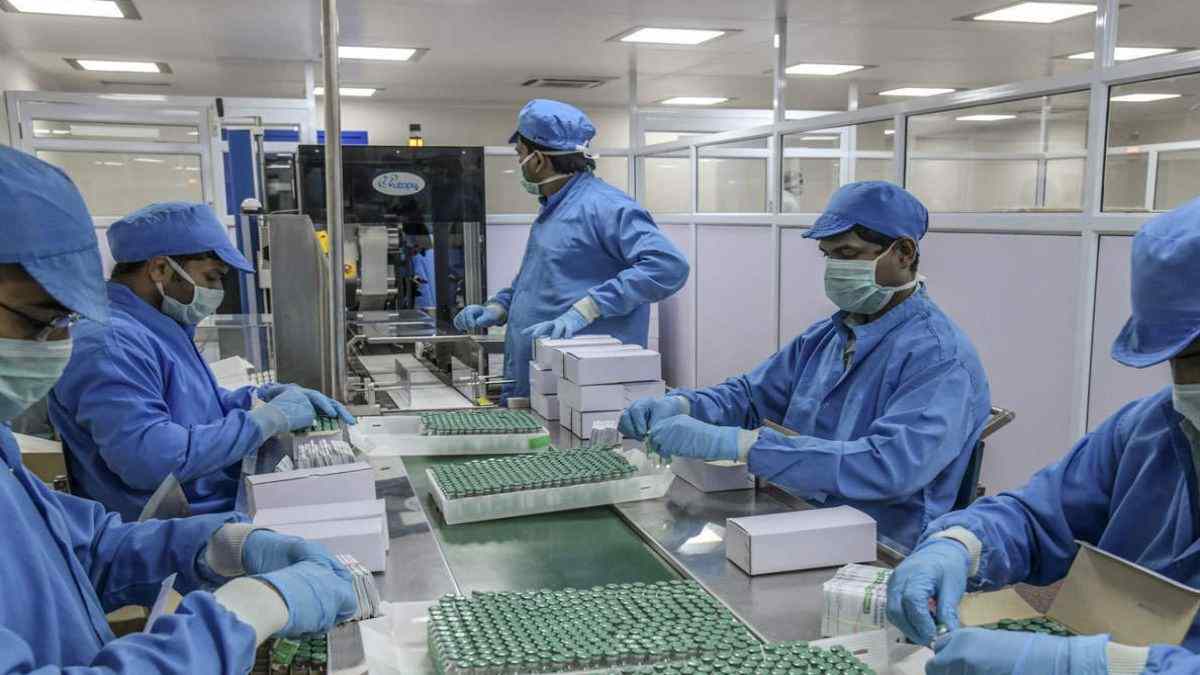Highlights:
- The statement by UN Chief Antonio Guterres comes after India donated to neighbouring nations over 55 lakh doses of coronavirus vaccine
- The UN Secretary-General also articulated confidence that India will have all the resources needed to play a major role in ensuring a global vaccination campaign becomes possible
- India also began commercial exports of vaccines for COVID-19 and sent two million doses each to Brazil and Morocco
The manufacturing potential of India’s vaccines is one of the greatest assets the world has today, UN Chief Antonio Guterres said as he congratulated India for providing nations around the world with COVID-19 doses to tackle the devastating global health crisis.
The UN Secretary-General also expressed hope that, as the world battles the pandemic, India will have all the resources needed to play a major role in ensuring a global vaccination programme becomes feasible.
Mr. Guterres said, “I’d like to say how much we count on India. I believe, India has one of the pharmaceutical industries that is the most advanced. In the manufacturing of generics for use, India played a very important role, which was a very important factor in democratizing access to medicines worldwide.”
He referred to a question from PTI during a press conference on Thursday on India supporting countries around the world in the battle against the global pandemic through the supply of COVID-19 vaccines.
Also Read: Serum Institute Of India Applies For Conducting Trials For Novavax’s COVID-19 Vaccine
Mr. Guterres, The UN Secretary-General, said, “And we sincerely hope that India will have all the tools necessary to play an important role in ensuring the possibility of a global vaccination program.” Mr. Guterres further added, “I believe India’s production potential is one of the best assets the world has today, and I hope the world understands that it needs to be completely utilized.”
Mr Guterres added that during his briefing to the UN Member States on his 2021 goals, he reiterated that licenses should be made available to companies around the world in order to be able to manufacture some of the existing vaccines.
The UN Secretary-General added, “I know that in India, there is a very high level of manufacturing of vaccine is going on, both of Indian-developed vaccines, and I think there is a perspective, very significant perspective, of also others. And we are in touch with Indian institutions for that.”
Under its “Vaccine Maitri” initiative, India airlifted more than 6 million COVID-19 doses to nine countries in Phase-I. Contractual supplies to different countries are also being carried out in a step-by-step way, and New Delhi has said it will supply the World Health Organization’s COVAX facility gradually.
COVAX is a global initiative to ensure rapid and equal access for all countries to COVID-19 vaccines, irrespective of their level of income.
COVAX revealed this month that approximately 150 million doses of the AstraZeneca/Oxford candidate are expected to be available in the first quarter of 2021, pending WHO emergency use listings, through existing agreements with AstraZeneca and the Serum Institute of India (SII).
India has also been applauded by the Joe Biden administration for sending a host of South Asian nations critical supplies of the COVID19 vaccine, identifying India as “a true friend” who is using his pharma to support the global community.
The Bureau of South and Central Asian Affairs of the US State Department’s account for had tweeted, “We applaud the role of India in global health, sharing millions of doses of South Asia’s COVID-19 vaccine. With Maldives, Bhutan, Bangladesh & Nepal, India’s free shipments of the vaccine started & will extend to others. India is a true friend using its pharmaceuticals to assist the global community.”
India, through urgent health and medical supplies, has supported more than 150 countries. With an initial donation of 10 million dollars, New Delhi pledged 15 million dollars to GAVI, the Vaccine Alliance, and operationalized the COVID-19 Emergency Fund for its neighbours.
India has already launched a major coronavirus vaccination program in which two vaccines, Covishield and Covaxin, are distributed to frontline healthcare professionals throughout the country. In the first six months, the nation plans to vaccinate over 300 million people.
In line with its “Neighbourhood First” policy, Nepal, Bangladesh, Bhutan, Sri Lanka and the Maldives have received India’s COVID-19 vaccines under grant assistance.
Also Read: Here is What Biden’s UN Pick Said on India’s Permanent Security Council Seat
India also started commercial exports of COVID-19 vaccines and sent Brazil and Morocco two million doses each.
Underlining that the aim for 2021 is to respond to COVID-19, Mr. Guterres told the General Assembly that vaccinations are the world’s first great moral test. He expressed concern that the world is falling short and vaccinations are rapidly reaching a handful of nations, while there are almost none in the poorest countries.
“Science is succeeding, but unity is lacking. Governments have a duty to defend their populations, but one nation at a time will not defeat COVID-19. It would eventually mutate if the virus is allowed to spread like wildfire in the global South; it is mutating, becoming more transmissible, more lethal, and ultimately more vaccine resistant, ready to return to the global North.”
He cited recent studies to state that vaccine hoarding could cost up to USD 9.2 trillion to the global economy, with nearly half of that effect in the richest countries themselves.
” In a world of vaccine haves and vaccine have-nots, there is only one victor: the virus itself.”
According to Johns Hopkins University, the overall number of coronavirus cases has reached 100.7 million worldwide, while deaths have risen to more than 2.18 million.


